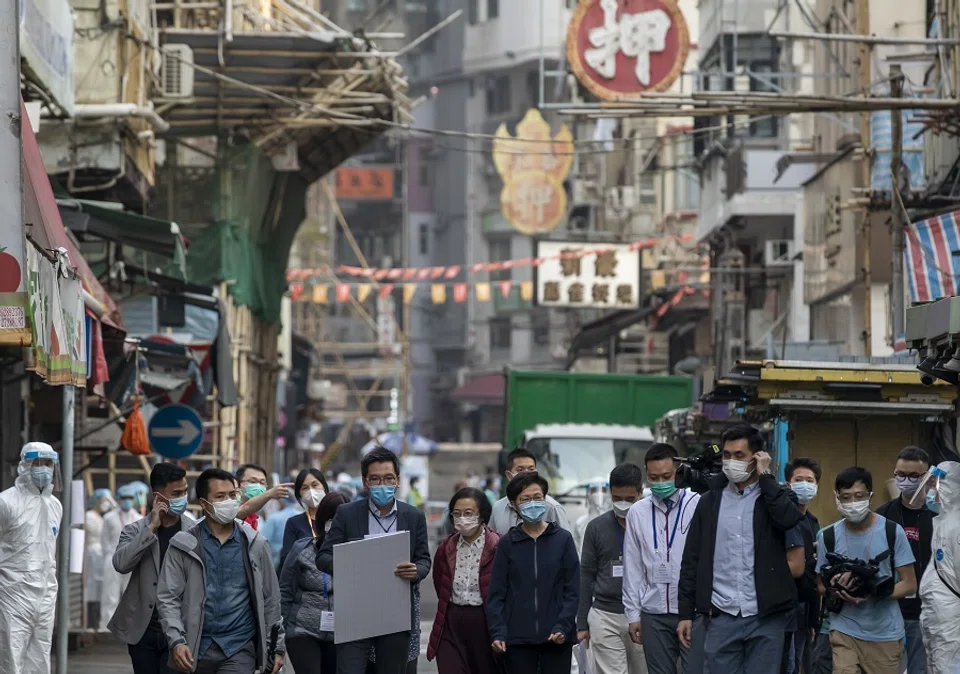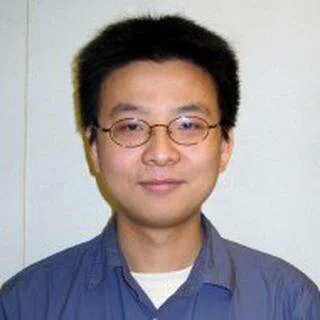The race is on: Picking Hong Kong's next chief executive
The Hong Kong chief executive elections are still a year away but speculation is rife as to the possible contenders in the race. Tai Hing Shing surveys the field and does not discount incumbent Carrie Lam.

It was an eventful year for Hong Kong last year. From the incessant protests to the implementation of the Hong Kong national security law, the postponement of the 2020 Hong Kong Legislative Council (LegCo) election and the resignation of Hong Kong pro-democracy legislators, each event left our heads spinning. This political pattern of sudden changes remains unchanged going into 2021, and the most closely watched event of all is the electoral race for the next chief executive.
As stipulated by law, the 1,200-member Election Committee (EC) will be formed at the end of this year, and they will pick Hong Kong's next chief executive in March 2022. This means that time is running out for candidates who wish to run for the election. Leung Chun-ying, Hong Kong's former chief executive and current vice chairman of the Chinese People's Political Consultative Conference, recently said that the chief executive could be chosen without an election. His sudden statement stirred up a heated debate within the political arena and is seen as a sign that the chief executive electoral race is about to begin.
Finance tsar with links to the current and previous administration?
It is common knowledge that Financial Secretary Paul Chan Mo-po was brought into the Leung administration when Leung was chief executive. The two have a close relationship and Leung has always hoped that Chan would succeed him. Leung's high-profile remarks and the recent joining of forces within the "Leung camp" to disparage the Lam administration's pandemic record have led to speculations that Leung's supporters who were unhappy when Carrie Lam took over as chief executive are now spoiling for a fight.
However, while Chan is viewed positively by his civil service colleagues, his mentor Leung simply has too many enemies in the political arena, and thus it is a question mark as to whether Chan's career can soar to greater heights.

Coincidentally, Chan, a dark horse in the electoral race, has made several high-profile appearances in the lead-up to this year's budget address on 24 February. Clad in a white chef's uniform, he appealed in a video to Hong Kongers to let him know their preoccupations, so that he could "cook" the budget to their taste. His personal appearance on video has invited speculation that he is "warming up" for the electoral race.
A dark horse from the private sector
However, while Chan is viewed positively by his civil service colleagues, his mentor Leung simply has too many enemies in the political arena, and thus it is a question mark as to whether Chan's career can soar to greater heights. Most people believe that there are other dark horses in this electoral race, such as Charles Li Xiaojia, former CEO/executive director at Hong Kong Exchanges and Clearing Limited (HKEX).
Li was born in mainland China and has studied overseas. He has also worked at major US-funded banks and is known to have formed close relations with foreign investors during his stint at HKEX. He is familiar with many Hong Kong tycoons and a segment of the wealthy are supportive of him governing Hong Kong. Li did not reveal where he was headed to after stepping down from his position at HKEX at the end of last year. Many guess that he is also preparing to contest in the chief executive electoral race.

It is a pity that Li does not have a strong command of Cantonese and like Chan, does not enjoy a high level of support. Even if he becomes the chief executive, Hong Kong's political situation would remain largely unchanged. This is his major shortcoming. Thus, political experts say that apart from the few candidates who have gradually made their intentions known, numerous other dark horses who are also interested to contest deserve attention as well, including Secretary for the Civil Service Patrick Nip Tak-kuen, among others.
Or perhaps a loyal police chief
Interestingly, amid this game of "guess the next chief executive", Hong Kong's Apple Daily reported that even as pro-establishment LegCo members last week expressed their dissatisfaction with Lam's handling of the pandemic, some people have suggested that police commissioner Chris Tang Ping-keung should be promoted directly to the role of the chief executive.
Tang is one of the hardliners in the Hong Kong government. After China's State Council appointed Tang as police commissioner in November 2019, the Hong Kong police clearly took a tougher stance against rioting and demonstrations - during the 48-hour police lockdown of the Hong Kong Polytechnic University in 2019, Tang was on the front line directing operations.
... after the anti-extradition demonstrations, Beijing's primary requirement for the post of Hong Kong chief executive became "absolute loyalty".
Over the past year or so, Tang has personally visited various community districts and shown his support for police officers. Earlier, an audio recording was circulated online, in which someone - thought to be one of Tang's officers - told frontline police that they could decide to use force without having to seek approval from headquarters: "There are people behind you, leave the LegCo explanation to me." Tang's approach has won him wide support in the police force.

Even Lam, who has always had high expectations of those under her, gave rare praise to Tang on Facebook in 2020, after working with him for a year. She recalled how she sought his views on a proposal that would touch on the police force, and that he told her he was not for it, but if the administration felt it had to be done, he would do his best. Lam felt this admirable response was completely in line with the qualities of loyalty and courage that Tang asked of the Hong Kong police following his appointment.
In fact, after the anti-extradition demonstrations, Beijing's primary requirement for the post of Hong Kong chief executive became "absolute loyalty". There was some talk that the central government intended to change the make-up of the EC to ensure a firm advantage of securing over half of the votes in the committee, in order to gain election for the candidate they wanted - if Beijing supports Tang as chief executive, with his motto of loyalty and courage, no doubt that would be its way of dealing the strongest counterblow to its detractors.
Carrie Lam still in the game
Of course, there are different interest groups in Hong Kong, and the chief executive needs to be able to take care of various stakeholders. Tang has a lot of experience with the police, but is unfamiliar with other policy areas. Coupled with strong anti-police sentiment on the ground, it is a big question mark whether he can be a competent chief executive.

On the other hand, Lam still has about 18 months to go in her term, and cannot be discounted just yet. Over the past two years, she has faced enormous pressure and criticism, but still has strong support from Beijing. Recently, Lam has stuck close to the central government and taken a tough stance, and it is still possible that she might be re-elected if she manages to lead Hong Kong out of the pandemic.
The Two Sessions held annually in March in Beijing has always been a platform for observing Beijing's policy towards Hong Kong. Given the approaching battle to be Hong Kong's chief executive, people are watching to see if Beijing will take the opportunity to hint at their preferred chief executive.



![[Photos] Fact versus fiction: The portrayal of WWII anti-Japanese martyrs in Taiwan](https://cassette.sphdigital.com.sg/image/thinkchina/3494f8bd481870f7c65b881fd21a3fd733f573f23232376e39c532a2c7593cbc)

